US Animal & Plant Health Inspctn
Pet HospitalIowaAmesDayton Avenue
1800 Dayton Ave, Ames, IA 50010, USA
0.0
The US Animal & Plant Health Inspection Service (APHIS) is a federal government agency, not a local 'Pet Hospital.' It plays a vital role in safeguarding animal and plant health, regulating pet travel, and enforcing animal welfare standards across the United States. This introduction clarifies its functions, its environment, and how its regulatory work benefits pet owners indirectly.
-
Overview
- (515) 663-7331
- www.aphis.usda.gov
Welcome to US Animal & Plant Health Inspctn
It is important to clarify from the outset that "US Animal & Plant Health Inspection Service," commonly known as USDA APHIS (United States Department of Agriculture's Animal and Plant Health Inspection Service), is not a traditional local "Pet Hospital" that provides direct medical care, such as examinations, surgeries, or emergency services, to individual pets. Instead, USDA APHIS is a critical federal government agency with a broad and vital mission to protect and promote U.S. agricultural health, administer the Animal Welfare Act, and regulate the import and export of animals and plants. While its work profoundly impacts the health and welfare of companion animals across the nation, it does so through regulatory oversight, policy development, disease prevention, and facilitation of safe animal movement, rather than through direct clinical interventions for pet owners.
Therefore, understanding USDA APHIS in the context of a "Pet Hospital" category requires a shift in perspective. APHIS functions as a regulatory and public health authority that sets standards and manages large-scale animal health and welfare concerns. This indirectly benefits individual pet owners by ensuring the overall health of the animal population, safeguarding against widespread diseases, and enabling the safe and legal movement of pets across borders.
The "environment" of USDA APHIS is not a welcoming clinic with waiting rooms for pet owners. Its operational environment spans various federal offices, specialized laboratories (such as the National Veterinary Services Laboratories - NVSL), and field operations across the United States and internationally. These locations are where its diverse team of experts, including veterinary medical officers, animal care inspectors, scientists, and policy analysts, carry out their mandate. Their work environment is characterized by scientific research, regulatory development, enforcement activities, and collaborative efforts with state, tribal, and international partners. It is an environment dedicated to public service, ensuring the safety and well-being of animals and plants on a national and global scale.
The "services" provided by USDA APHIS are not clinical veterinary services for individual pets, but rather essential governmental functions that support the broader animal health infrastructure. These services include:
Animal Health Protection and Disease Prevention: APHIS actively works to prevent, control, and eradicate animal diseases that could threaten U.S. livestock, poultry, and by extension, companion animals and public health. This involves surveillance programs, rapid diagnostic capabilities through NVSL, and emergency response planning for disease outbreaks. This ensures a healthier environment for all animals, including pets.
Animal Welfare Act (AWA) Administration and Enforcement: APHIS's Animal Care program enforces the Animal Welfare Act, which establishes minimum standards for the humane care and treatment of certain animals. This applies to animals exhibited to the public, sold as pets (e.g., by commercial breeders and dealers), used in research, or transported commercially. APHIS conducts inspections and investigations to ensure compliance, thereby protecting the welfare of pets before they enter individual homes.
Regulation of Veterinary Biologics: Through the Center for Veterinary Biologics (CVB), APHIS is responsible for ensuring that veterinary vaccines, diagnostic kits, and other biological products used to prevent and treat animal diseases are pure, safe, potent, and effective. This direct oversight ensures that the medications and vaccines administered to pets by private veterinarians meet rigorous quality standards.
Facilitation of Safe Animal Movement (Pet Travel): A crucial service for pet owners is APHIS's role in regulating and facilitating the safe movement of pets both domestically and internationally. APHIS provides detailed information on import and export requirements for pets and endorses health certificates issued by USDA-accredited private veterinarians. This process is essential for ensuring that pets meet the health standards of their destination, preventing the spread of diseases, and streamlining travel for pet owners.
Wildlife Damage Management: APHIS's Wildlife Services program addresses conflicts between wildlife and human interests, which can include managing wildlife populations that pose risks to animal health (e.g., rabies vectors) or agricultural resources.
Biotechnology Regulatory Services: APHIS regulates genetically engineered organisms, including those that might impact animal health or the environment, ensuring their safe development and use.
The "features" of the US Animal & Plant Health Inspection Service are primarily its governmental authority, scientific rigor, and public service orientation. Key features include:
Federal Regulatory Authority: APHIS holds the legal mandate to establish and enforce regulations that govern animal health, welfare, and trade, providing a consistent national framework.
Extensive Scientific and Veterinary Expertise: The agency is staffed by highly qualified veterinarians, scientists, epidemiologists, and other specialists who apply scientific principles to protect animal and plant health.
Comprehensive Public Resources: APHIS maintains extensive online resources, including websites dedicated to pet travel (APHIS Pet Travel Website), animal welfare information, and disease updates. These resources empower pet owners and professionals with accurate and essential information.
National Veterinary Accreditation Program: APHIS manages a program to accredit private practice veterinarians, enabling them to issue health certificates for interstate and international pet travel. This network serves as a critical link between APHIS's regulations and individual pet owners.
Proactive Disease Surveillance: APHIS is continuously engaged in surveillance efforts to detect and monitor animal diseases, allowing for rapid response and containment to protect both animal and public health.
One Health Approach: APHIS champions the "One Health" concept, recognizing that the health of animals, people, and the environment are interconnected. This integrated approach guides their efforts to address complex health challenges.
As a federal agency, USDA APHIS does not engage in traditional "promotional information" like a local "Pet Hospital" offering discounts on services or goods for sale. Instead, its "promotions" are primarily focused on public outreach, education, and fostering compliance with regulations to achieve its mission. These "promotional" efforts take the form of:
Public Information Campaigns: APHIS conducts campaigns to raise awareness about significant animal health issues (e.g., highly pathogenic avian influenza, African Swine Fever, rabies prevention) and the importance of responsible pet ownership, biosecurity, and humane treatment of animals.
Educational Materials and Guidance: The agency publishes numerous guidance documents, fact sheets, and online tools (such as the Pet Travel website) to help the public and regulated entities understand complex regulations related to pet travel, animal imports, and animal welfare standards. This aims to simplify compliance and facilitate processes.
Stakeholder Engagement and Collaboration: APHIS collaborates extensively with veterinary associations (like the American Veterinary Medical Association), animal welfare organizations, industry groups, and state/local governments to disseminate information and promote best practices. This partnership approach strengthens the overall animal health infrastructure.
Regulatory Updates and Public Notices: Regular announcements, press releases, and publications in the Federal Register (like updates to the Horse Protection Act or highly pathogenic avian influenza indemnities) serve to inform the public and regulated industries about new policies, regulations, or disease situations.
Training and Workshops: APHIS provides training and educational opportunities for veterinarians and other stakeholders, ensuring they are well-informed about regulations and best practices, which ultimately benefits pet owners through improved standards of care.
In conclusion, the US Animal & Plant Health Inspection Service (USDA APHIS) is not a "Pet Hospital" that offers direct veterinary care to individual animals. Rather, it is a crucial federal regulatory and public health agency that protects animal and plant health across the nation. Its extensive services, authoritative features, and educational "promotions" are all designed to create a healthier and safer environment for all animals, including pets, by setting standards, preventing disease, and facilitating compliant animal movement. While not interacting directly with pet owners for clinical care, its foundational work is indispensable to the well-being of the broader animal population.
US Animal & Plant Health Inspctn Services
Veterinarian
- Emergency Management
- Emergency Response
- Laboratory Services
- Veterinary Services
US Animal & Plant Health Inspctn Details
Accessibility
- Wheelchair-accessible car park
- Wheelchair-accessible entrance
Amenities
- Toilet
Planning
- Appointments recommended
US Animal & Plant Health Inspctn Location
1800 Dayton Ave, Ames, IA 50010, USA
Reviews
Pet Hospital
 USDA Veterinary Services
USDA Veterinary Services
1800 Dayton Ave, Ames, IA 50010, USA
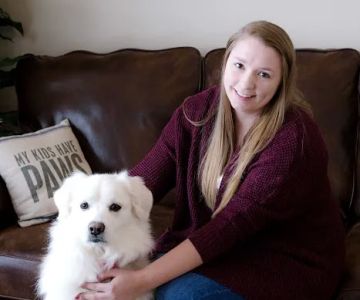 Somerset Veterinary Hospital
Somerset Veterinary Hospital
1518 Boston Ave, Ames, IA 50010, USA
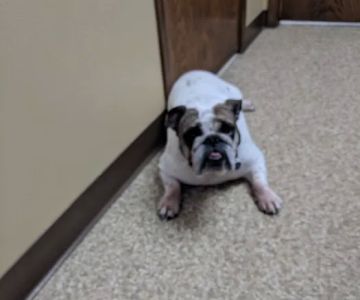 All Pets Animal Hospital
All Pets Animal Hospital
107 E 2nd St, Ames, IA 50010, USA
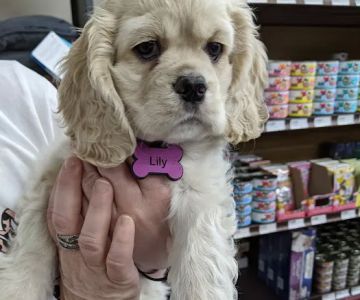 Abby's Road Vet Care
Abby's Road Vet Care
525 Kellogg Ave, Ames, IA 50010, USA
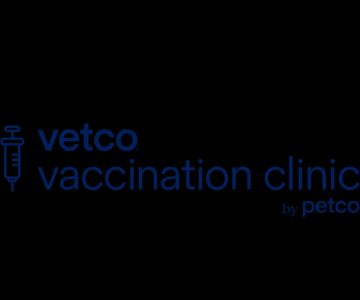 Vetco Vaccination Clinic
Vetco Vaccination Clinic
205 SE 5th St, Ames, IA 50010, USA
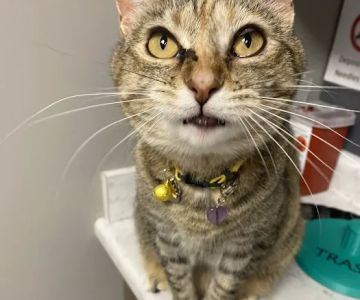 Pet Medical Center
Pet Medical Center
1416 S Duff Ave, Ames, IA 50010, USA
